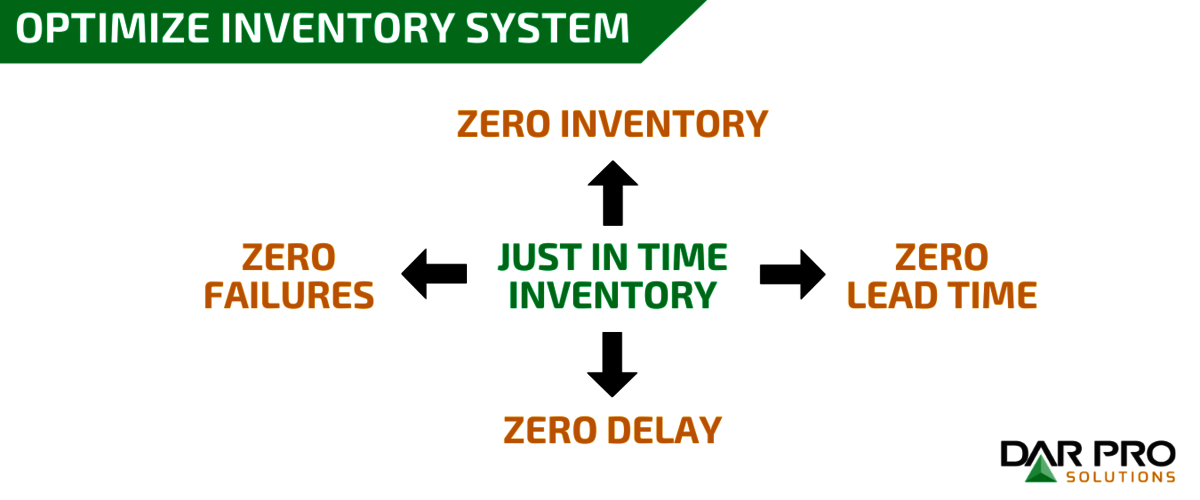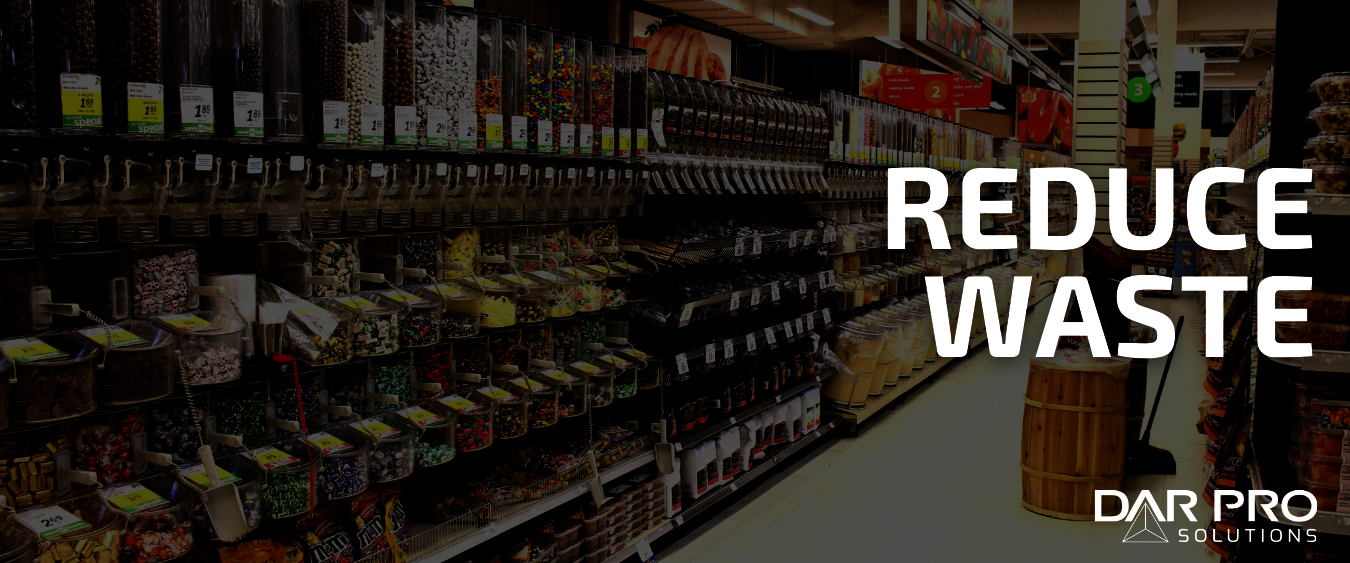
Improve and optimize your inventory
Did you know that 13 percent of food is lost at retail and distribution levels, and that around 30 percent of what is found in grocery store dumpsters is organic material? Optimizing your inventory ordering process can drastically reduce the amount of waste your store produces.
Make sure you are using an up-to-date system as it pertains to ordering your supplies and ingredients. Putting a just-in-time inventory system, or something similar to it, in place is never a bad idea. It will ensure you are ordering the right amount of supplies per shipment and will reduce the amount of food waste that stems from going bad before it ever leaves your shelves.
When it comes to supplies, who you order from is just as important as how you order. Partnering directly with local farmers is one way in which you can help reduce food waste. Seven percent of produce is left unharvested in fields across the United States every year. This stems in large part from farmers growing more crops than are actually needed as a precautionary measure against weather, disease and other external factors. But if grocery stores partner with local farmers, there can be better communication about what is needed from a supply standpoint, which can help reduce the amount of crops that are left unharvested. Think of these local farmers as a partner rather than a contractor hired to provide a needed product. When working together, you can improve the long-term viability of the food chain and support the local economy in addition to reducing food waste.
Shopping local when possible is always the way to go.
Reduce packaging waste
This is a heavy contributor to the overall waste output of most grocery stores. Zero-waste grocery store concepts started in Europe a little over a decade ago and are becoming more common in the United States. One of the core practices of these stores is eliminating packaging waste entirely. They achieve this by going with a market-style layout with no prepackaged groceries, utilizing reusable bags or asking customers to bring their own bags into the store.

If this isn’t a feasible option for your store, do your best to reduce packaging waste by having reusable bags on hand at your store. Consider doing away with specialty plastic produce bags and look into acquiring reusable produce cartons.
Take a look around your store and notice the amount of needless packaging is used in keeping the items you sell in stock. Any measure you can take to trim down packaging is an impactful step in reducing your overall waste output.
Repurpose and recycle
Sometimes, the best way to reduce waste is to redefine it into something else entirely, meaning it is no longer waste. Repurposing and recycling materials that would otherwise be considered garbage is important in shrinking your waste footprint. You can start with food. Donate expired or excess items to a food bank or another predetermined location.

Realistically, there is going to be some amount of food waste from your daily operations. Composting organic and vegetable waste is a superior option than simply throwing it away and having it end up in a landfill.
You can take recycling a step further by partnering with a used cooking oil collection and meat byproduct provider. There are many reputable companies that will come pickup your grease as well as animal fat and bone material. Not only will they take it off of your hands, but they’ll repurpose it into a valuable commodity that helps create a more sustainable environment. The collected material can be processed into ingredients used in the production of renewable diesel, a cleaner burning alternative to petroleum fuels that is capable of powering trucks on its own and reduces carbon emissions by up to 85 percent per gallon.
So, not only are you not throwing away material that would otherwise end up in a landfill, you’re giving it a renewed purpose that makes an impact long after it leaves your store. In addition to shrinking the amount of waste you produce; you can market that as part of your business’s sustainability story. Let your customers know that you are going above and beyond to implement eco-friendly practices.
Inform and incentivize your staff
In some cases, your waste reduction efforts are only as impactful as your staff’s buy-in to the cause. Incentivize your staff to contribute through the cause. Implement a rewards program for excellent waste reduction practices or ideas.
Set a goal for your team to reduce a percentage of your waste by a certain date, whether that is over a month, handful of months or a year. Tracking your progress is a crucial part in seeing your plan through. You have to know how much waste you're producing in order to know the impact your reduction efforts are making. Your employees fully buying into the idea will only strengthen these efforts and will in turn lead to better results.

Now that you have a few ideas on how to reduce waste within your grocery store or supermarket, let’s see how close you can get to becoming a zero-waste business.
DAR PRO Solutions provides unparalleled used cooking oil recycling, grease trap maintenance and inedible meat byproduct collection services to grocery stores across the country. Reach out to a DAR PRO representative today and find out how your business can benefit from our program. Call us 24/7/365 at 855-DAR-PRO1 (855-327-7761).
Contact Sales
For customer service inquiries call our toll free number (855) 327-7761
By submitting this form I agree to the privacy policy including the usage of contact details to contact me for marketing purposes.
9/13/2021
